Google Chrome vs. Microsoft Edge: Which browser is best?
Has Microsoft Edged out Chrome as the best browser on the market?
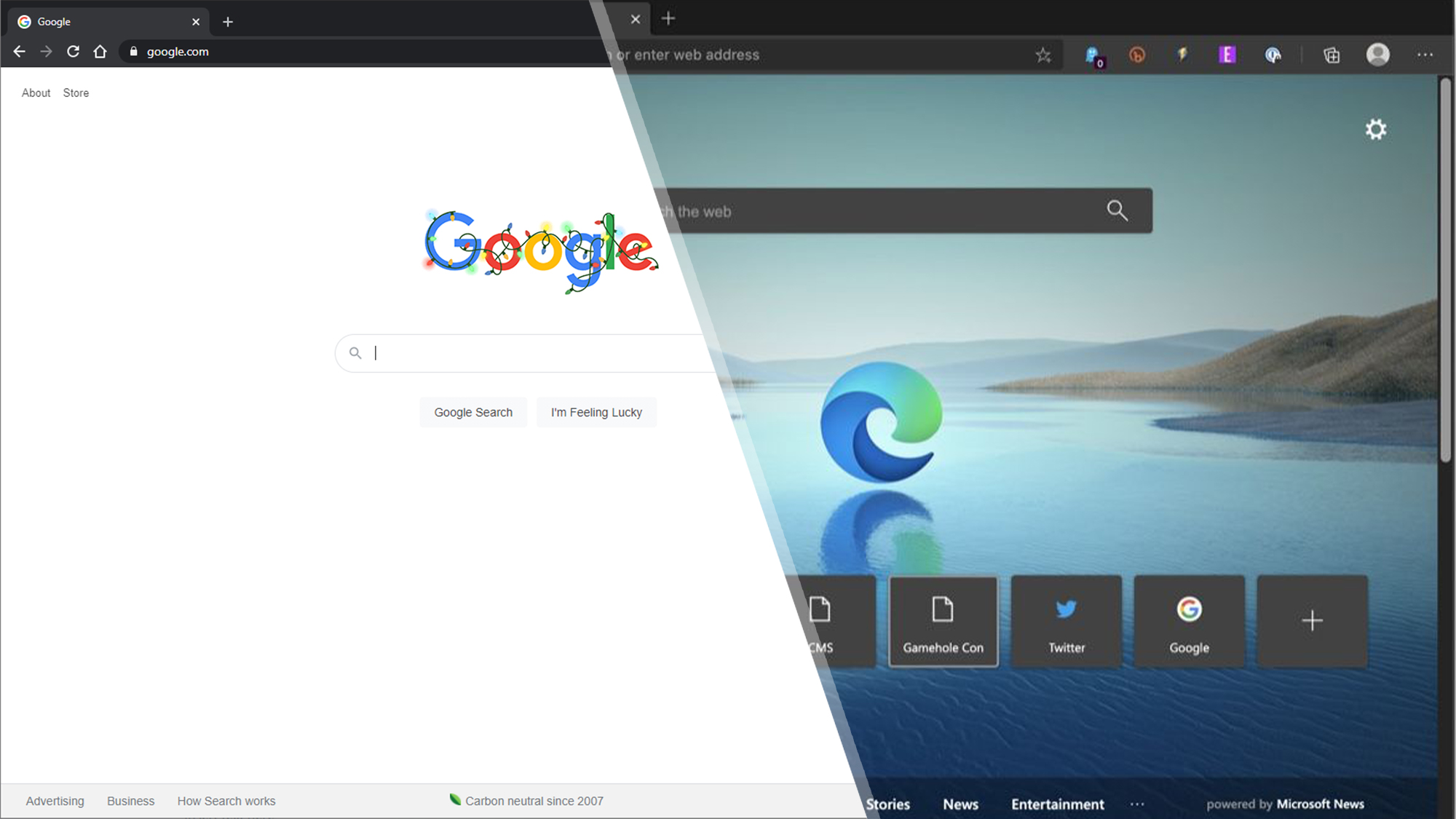
Sign up to receive The Snapshot, a free special dispatch from Laptop Mag, in your inbox.
You are now subscribed
Your newsletter sign-up was successful
Google Chrome vs. Microsoft Edge is a legitimate challenge following Microsoft’s move to a Chromium base for Edge in 2020 that completely changed the capabilities and performance of the browser.
Despite having the same core engine and a number of shared features, there are fundamental differences and unique options available on each browser that make this decision more than simply branding. Both Google and Microsoft also continue to churn out updates to the browsers that will keep the renewed browser wars interesting for some time.
I tested the two browsers across five categories including performance and features, using my Lenovo Yoga C940 (14-inch) that features an Intel Core i7-1065G7 CPU and 12GB of RAM.
- The best Chromebooks on the market
- Mozilla Firefox update is making me abandon Chrome — Here's why
- The best cheap Chromebook deals available today
Whether you’ve never tried Edge before or had some experience with the previous version, you are going to want to read on to see if Microsoft has managed to deliver a worthy competitor to Chrome.
Best Black Friday 2021 deals
Black Friday 2021 falls on November 26 and we expect to see tons of excellent deals on today’s most coveted tech. Be sure to bookmark our Black Friday 2021 deals hub for the best holiday discounts.
Google Chrome vs. Microsoft Edge: Performance
The first thing we’re going to take a look at is the pure speed of the browsers in rendering and responsiveness. Several months into using Edge as my primary browser, while dipping over to Chrome from time to time I still don’t see a discernible difference between the two in regards to performance.
Fortunately, I don’t need to rely on my eyes alone, instead, I can turn to some benchmark methods to see if there’s a quantifiable difference between the speed of the two browsers. I used one of the most well regarded benchmarking tools for this, WebXPRT 3 by Principled Technologies. It runs your browser through a series of six different varieties of tests that simulate real-world activities and, in the process, tests both the HTML5 and JavaScript performance of the browser.
Sign up to receive The Snapshot, a free special dispatch from Laptop Mag, in your inbox.
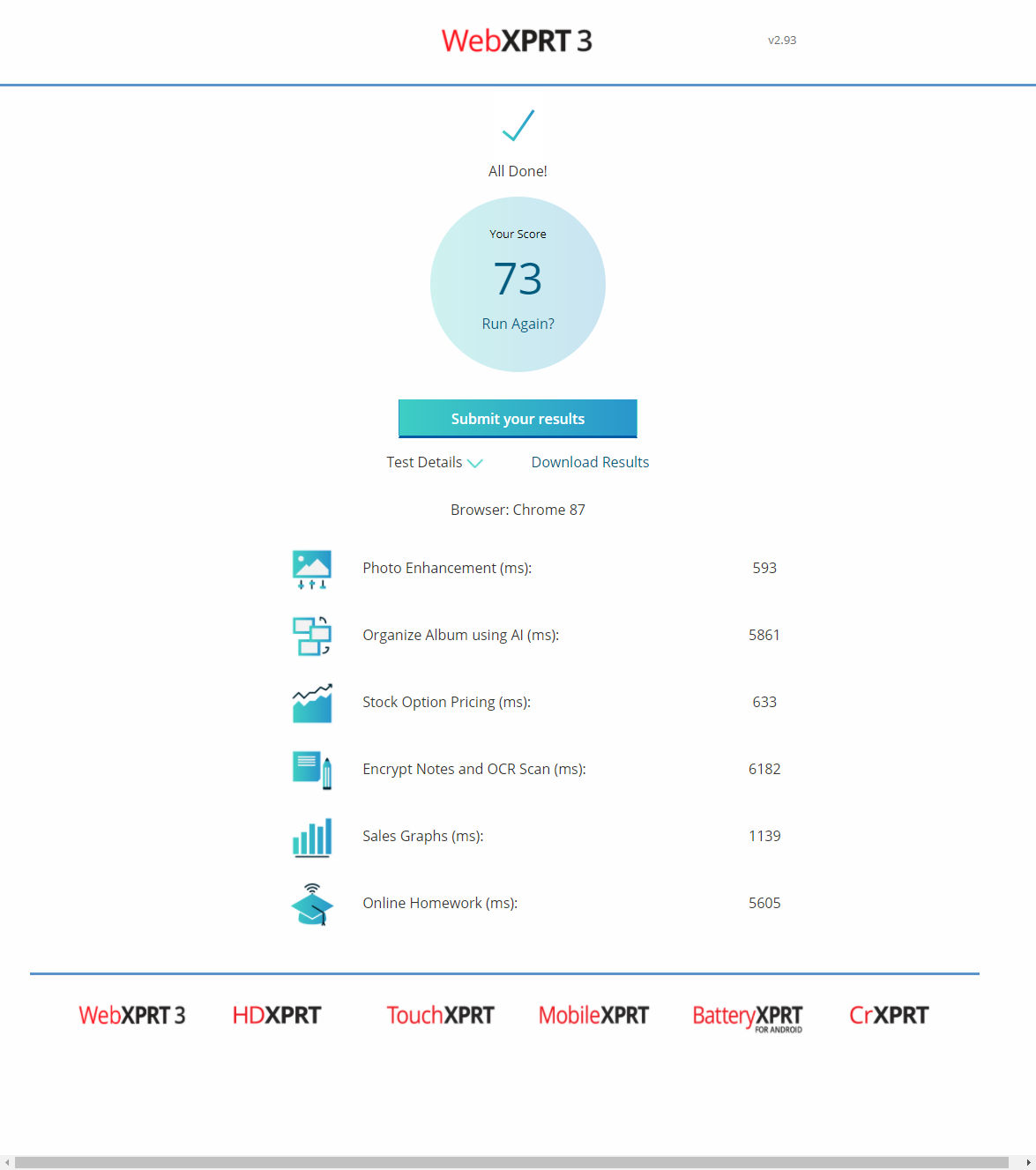
Google Chrome WebXPRT 3 performance
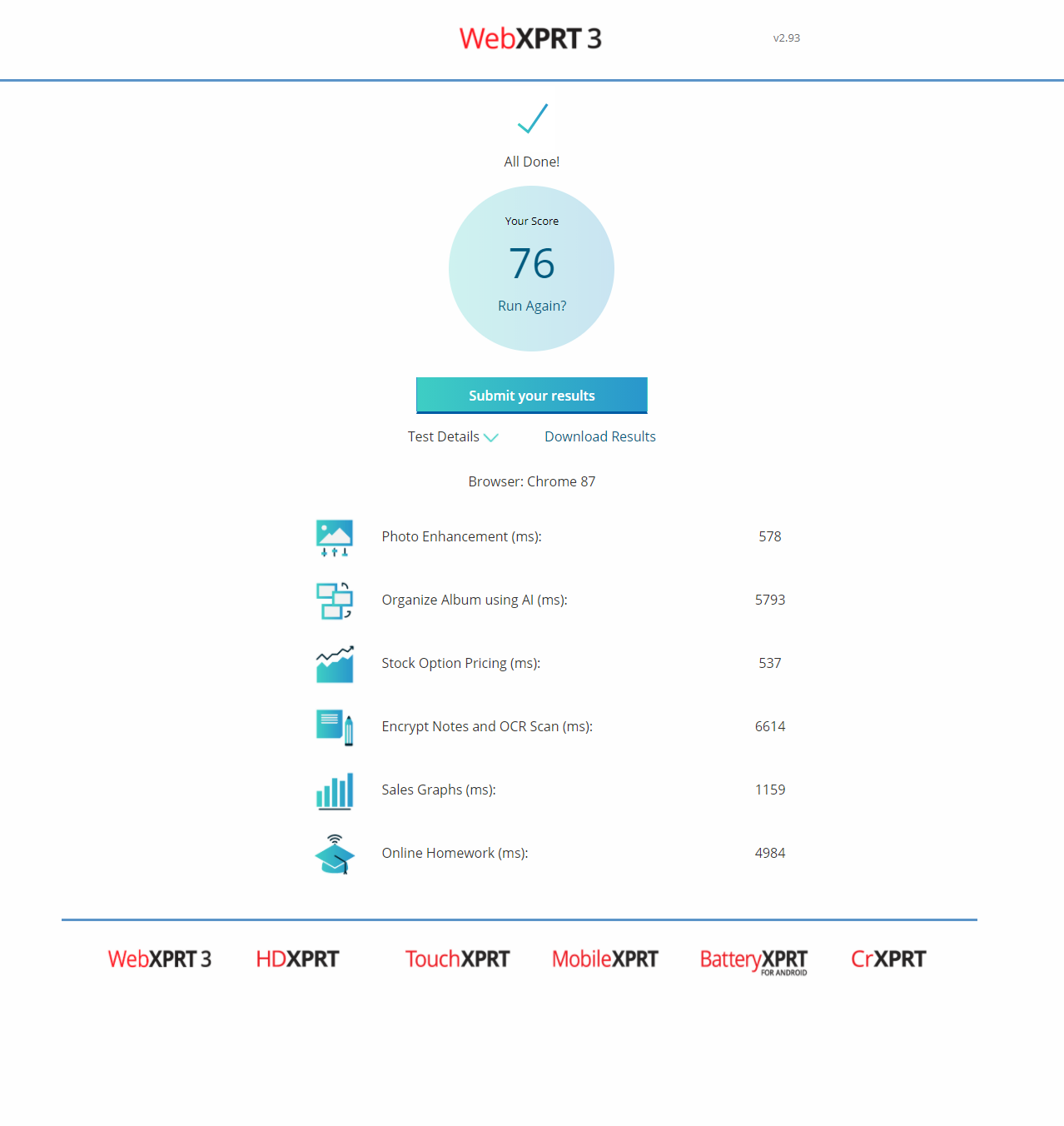
Microsoft Edge WebXPRT 3 performance
Before testing each browser, I restarted my laptop and ensured nothing else was running to get as close as possible to identical conditions. Microsoft Edge claimed the win by a reasonably narrow margin with a total score of 76, based largely on a much stronger performance in the Encrypt Notes and OCR Scan test. Google Chrome finished with a 73, winning four of the six categories, but not by enough.
I’m going to give the win in this category to Microsoft Edge, but it remains close enough that I wouldn’t make a determination on this factor alone.
Winner: Microsoft Edge
Google Chrome vs. Microsoft Edge: System usage
Next, I took a look at the system impact that each of these browsers had on my laptop. Even Chrome’s most ardent fan would concede that it can be a resource hog, but Google has thrown a lot of attention at this problem over the last year.
In my months of sticking with Edge as my primary browser I have definitely pushed it to its limits and bogged my laptop down with it at times, but that’s attributable to my own bad habits of loading far too many windows and tabs at once.
Again, prior to each test I restarted my laptop and made sure that no other applications were running. I loaded the same collection of four tabs on each browser: the Laptop Mag home page, a running 1080p YouTube video, Twitter and Google Docs. I then viewed the relevant app’s CPU and memory usage in Windows 10’s Task Manager to measure the impact.
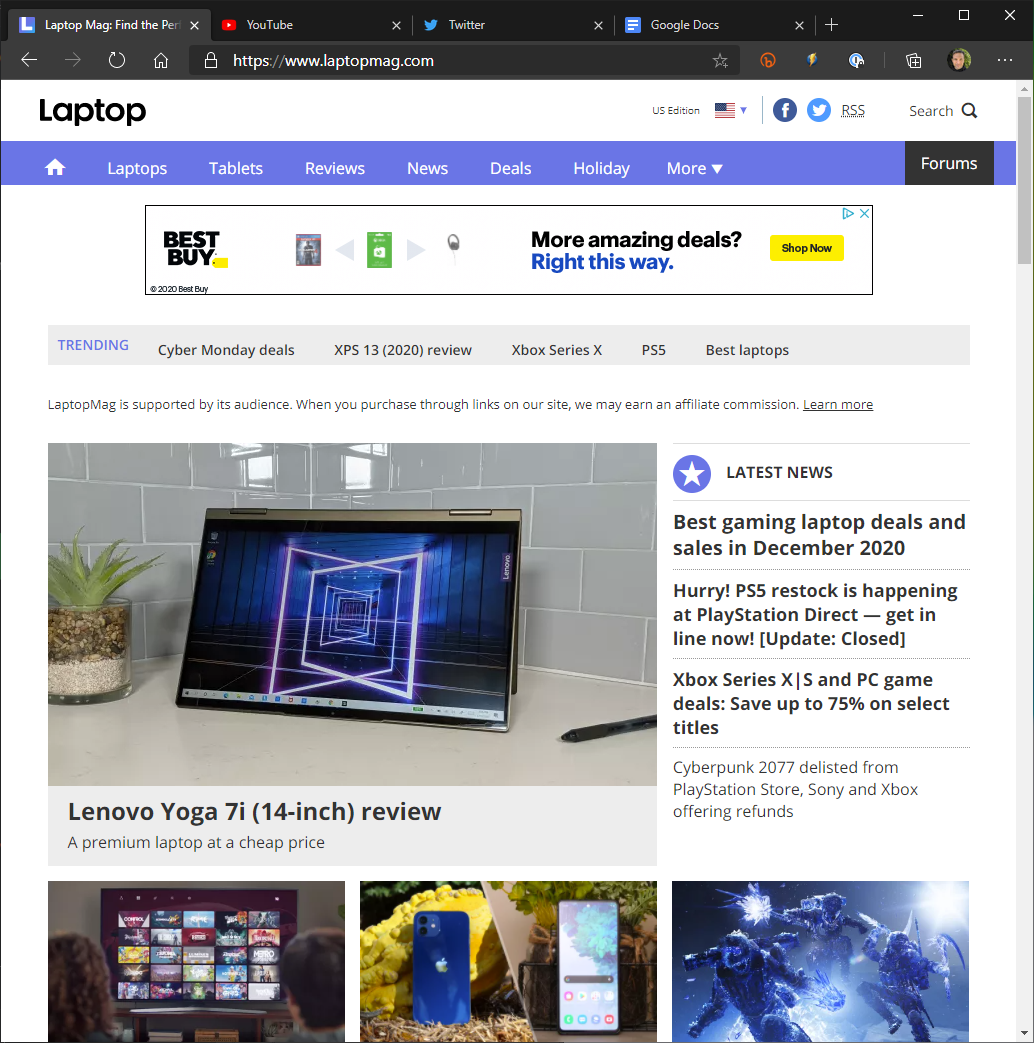
First up was Microsoft Edge. RAM usage was pretty consistently right around 0.9GB with occasional spikes to just over 1GB. CPU usage showed more movement, typically varying between 3-5% but in a few instances, it jumped to 20% and even 30% for a few seconds at a time.
Turning to Google Chrome, the RAM usage was similarly consistent, although it fluctuated between 1.25 to 1.35GB, so 30-40% higher than Edge. CPU usage on the other hand was only marginally higher than Edge, sticking predominantly to 4-6% usage with only occasional spikes up to around 30% for a few seconds.
While Microsoft Edge is still the clear winner here, Google has moved the needle when it comes to reducing Chrome’s system impact as it was a much more distant second on both metrics last time around.
Winner: Microsoft Edge
Google Chrome vs. Microsoft Edge: Extensions
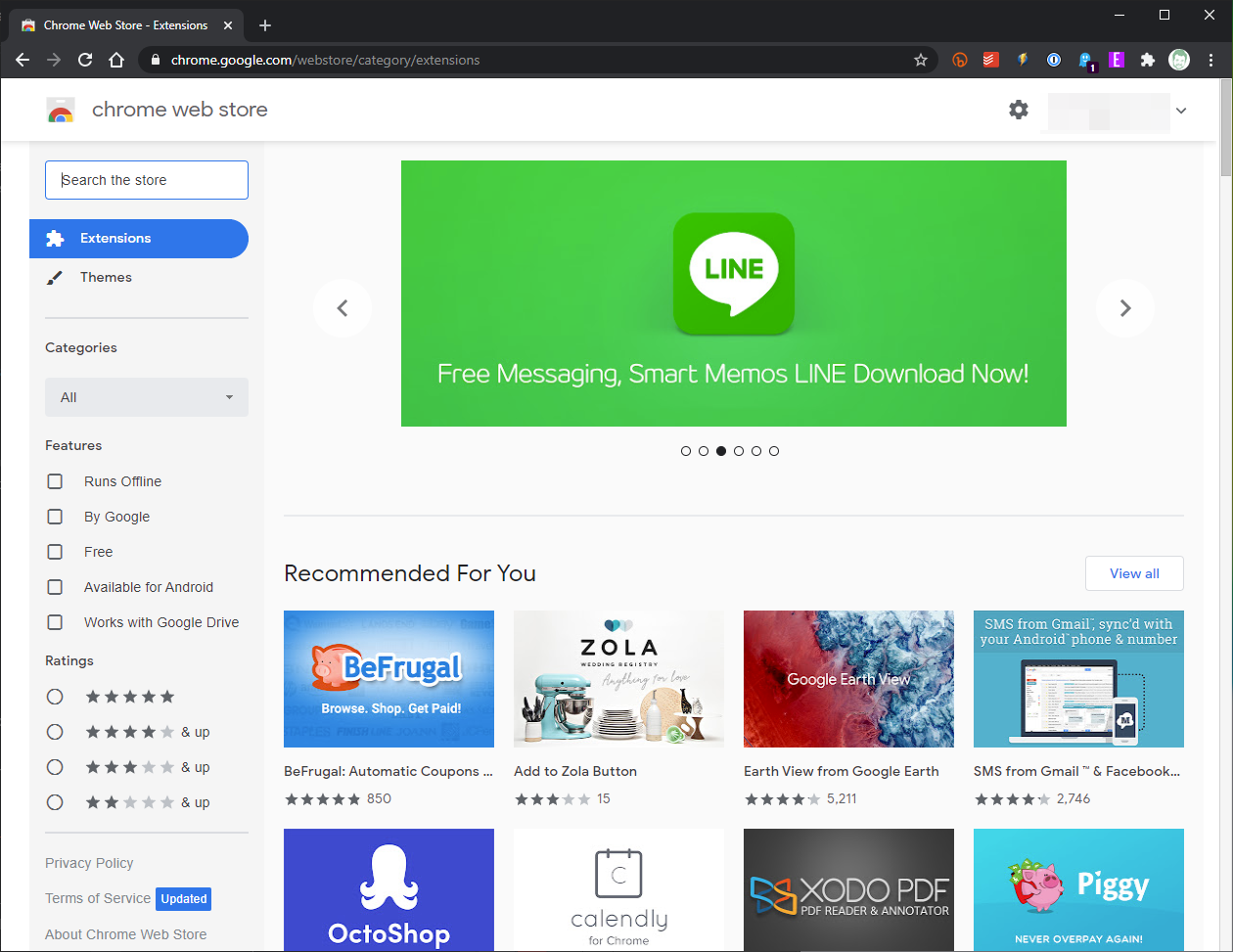
While the move to Chromium delivered a lot of things to Edge, one of the most crucial for power users was support for extensions. The Microsoft Store’s collection of extensions continues to grow to a point where most users probably won’t need to add Chrome extensions as well. Fortunately for those who do want something that is only available in the Chrome Web Store, downloading and adding them to Microsoft Edge is simple: simply toggle “Allow extensions from other stores” on the Edge Extensions page.
While there have been definite improvements to the Microsoft Edge Add-ons page over the months I’ve been using it as my primary browser, there is no question that the Chrome Web Store remains the more robust of the two with a considerable advantage when it comes to quantity.
Edge users aren’t missing out on these extensions, but you will run into the occasional incompatibility and it is irrefutably less convenient than just adding to Chrome from the Chrome Web Store. I’m still giving this category to Google Chrome at present, but for a lot of users, there isn’t a meaningful difference between the two.
Winner: Google Chrome
Google Chrome vs. Microsoft Edge: Security and privacy
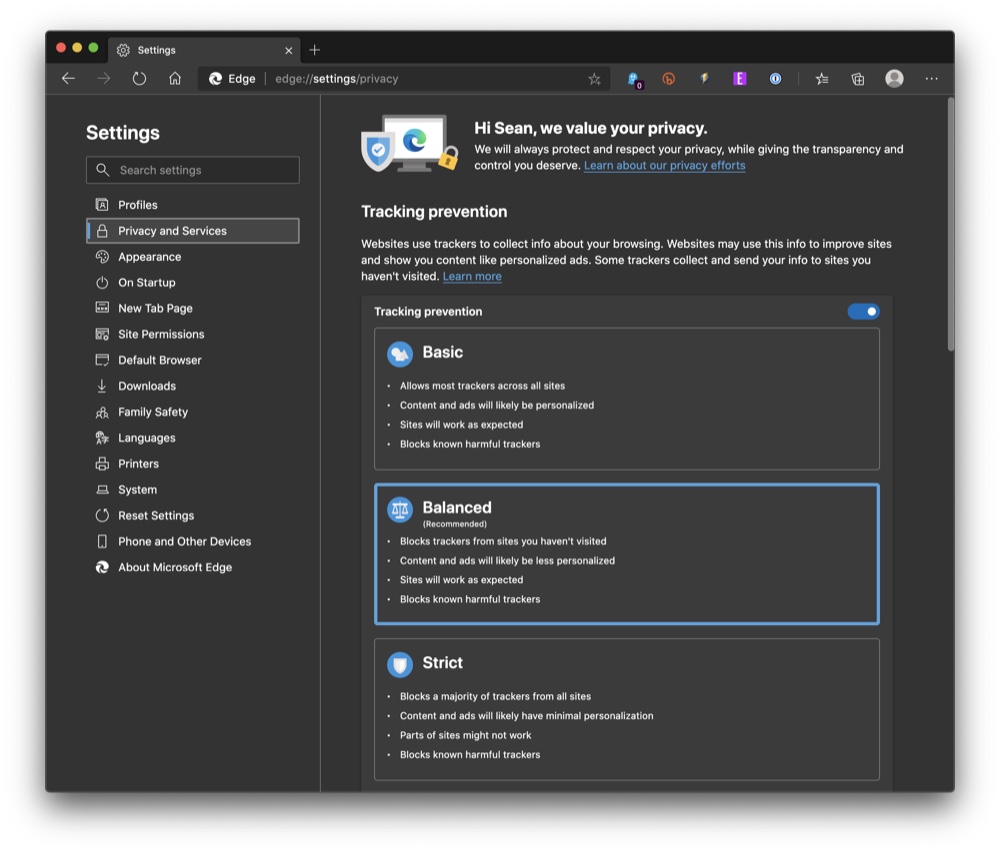
With Chrome 83, released in May of 2020, Google added several new user-facing security and privacy features. These gave users more control over their data in Chrome, including the sharing of your data with Google. Some of this was simply revamping existing features to make them clearer, like the “Cookies and other site data” section of Privacy and Security, while others were entirely new like the “Enhanced protection” option in Safe Browsing.
With all of that said, trying to navigate the privacy and security screens in Chrome remains confusing for the average user and even new security and privacy-protecting features like Enhanced Protection are dependent on sending your data to Google. Ultimately, you need to put your trust in Google to use Chrome as your primary browser and while it is unquestionably in the company’s best interest to protect your data from everyone, it’s also easy to see why this makes some users uncomfortable.
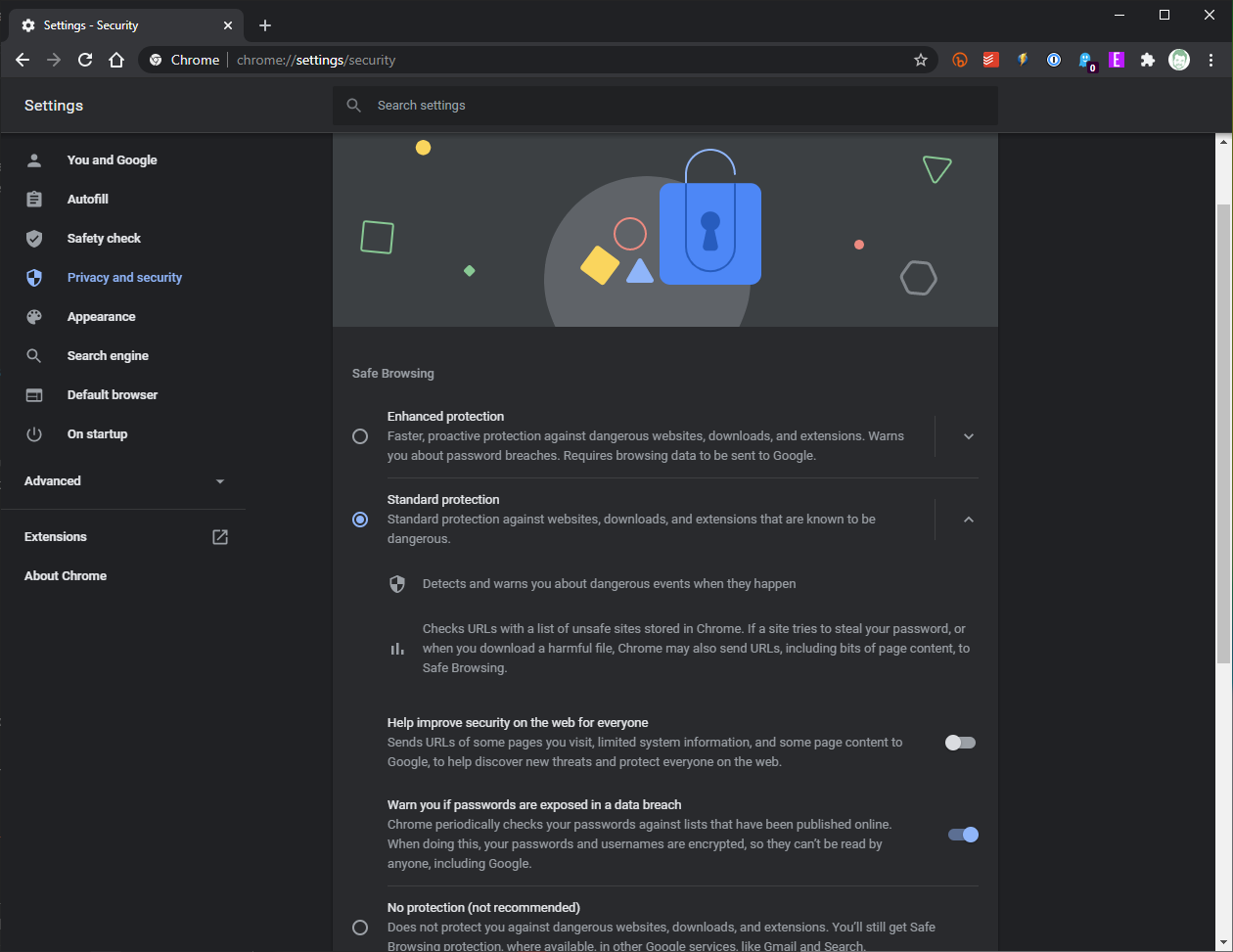
Microsoft Edge still makes handling security and privacy much easier for users from the moment they install the browser. There is a relatively easy-to-understand set of options to choose from during setup. You can select Basic, Balanced or Strict tracking prevention and Microsoft gives you a brief bulleted list of what each level will block as well as the potential ramifications are for your browsing experience.
There is no doubt that this is an area Microsoft has targeted as a result of Google’s endless struggle with balancing privacy against its need for user data. Regardless of the reasoning behind it, Microsoft makes all of these features more accessible and comprehensible in Edge than Google has managed with Chrome. It is unquestionably possible to arrange virtually identical security and privacy settings between the two browsers, but doing so on Chrome requires quite a bit more work.
Winner: Microsoft Edge
Google Chrome vs. Microsoft Edge: Platform support
Having just released this version of Microsoft Edge earlier this year, it’s not surprising that Edge can’t quite match up with Chrome on platform support, but it’s probably closer than you think.
Microsoft Edge is available for Windows 7 and up, macOS 10.12 and later, iOS (iPadOS) 11.0 and up, and Android 4.4 and later. A Linux version is currently in dev preview which will add support for Debian, Ubuntu, Fedora and OpenSUSE. ChromeOS will be the main missing platform at that point, and there’s been no indication that Microsoft has plans for it.
Google Chrome is available for Windows 7 and up, macOS 10.10 and later, iOS (iPadOS) 12.0 and up, Android 5.0 and later along with Linux support for Ubuntu, Debian, Fedora and OpenSUSE.
Google takes this one by the thinnest of margins and soon ChromeOS will be the only differentiator, at which point, I’ll update this to a draw.
Winner: Google Chrome
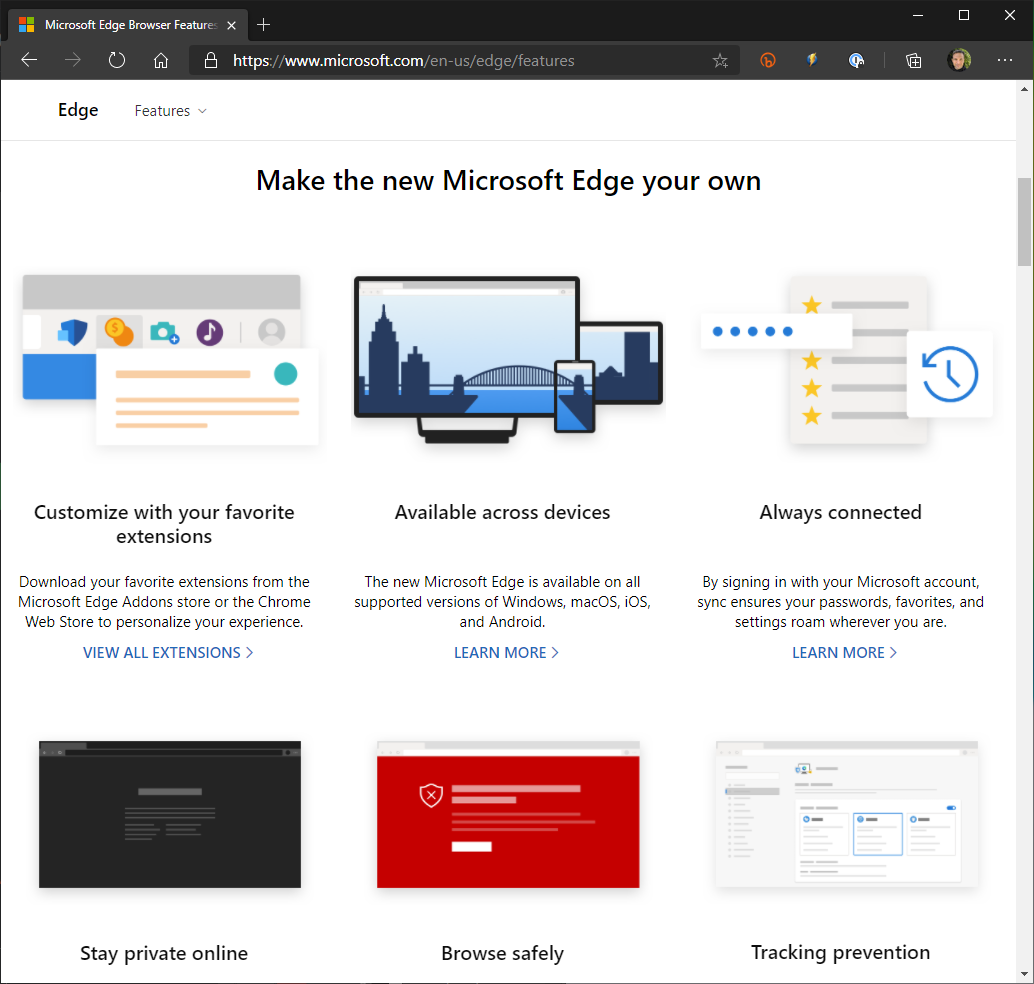
Google Chrome vs. Microsoft Edge: Overall winner
I was a bit stunned by the results and reluctant to name Edge the winner the last time I conducted this face-off. But I feel no such qualms this time around. Unless your laptop is loaded down with more RAM than you know what to do with, Google Chrome is going to negatively impact your system performance if you run more than a handful of tabs at a time.
If that were the lone advantage of Edge I wouldn’t recommend it as there’s a lot more that goes into a browser. But as you can see from the results above, Edge consistently performed better than Chrome While not to a massive degree, the speed boost is another point in Edge’s favor.
Security and privacy are undeniably easier to manage on Edge and while extensions and overall platform support are in Google’s favor, they are both hovering on the edge of being a draw as Microsoft is only half a step behind on both.
While there is definitely a bit of a learning curve as you adjust some of your habits from however many years of Chrome use, Microsoft has made switching quite easy and I’d recommend that you give it a shot to see for yourself if Edge gives you the better experience as it did for me.
Sean Riley has been covering tech professionally for over a decade now. Most of that time was as a freelancer covering varied topics including phones, wearables, tablets, smart home devices, laptops, AR, VR, mobile payments, fintech, and more. Sean is the resident mobile expert at Laptop Mag, specializing in phones and wearables, you'll find plenty of news, reviews, how-to, and opinion pieces on these subjects from him here. But Laptop Mag has also proven a perfect fit for that broad range of interests with reviews and news on the latest laptops, VR games, and computer accessories along with coverage on everything from NFTs to cybersecurity and more.

